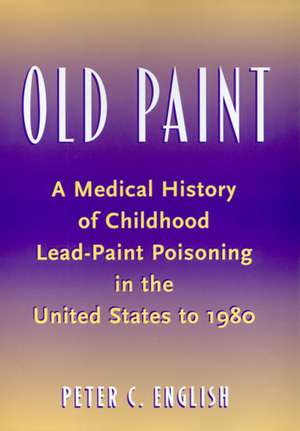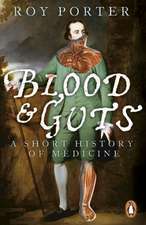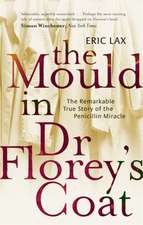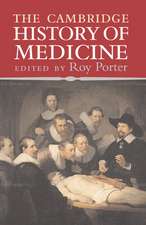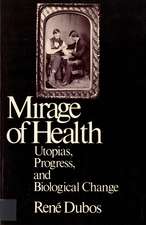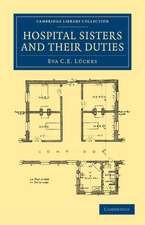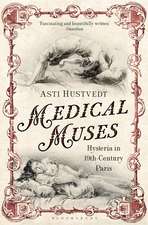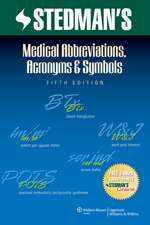Old Paint: A Medical History of Childhood Lead-Paint Poisoning in the United States to 1980
Autor Peter C. English M.D.en Limba Engleză Hardback – sep 2001
In the early twentieth century lead had many domestic uses: in solder for cans, as a gasoline additive to prevent “knocking” in engines, in water pipes, and, most prominently, in interior paint prized for its durability and ability to hold color. Far from being the toxic hazard we recognize today, lead was a valuable commodity. However, by the end of the century, lead had largely disappeared from our environment as physicians discovered the threat it posed to children’s health and mental development.
Old Paint documents the history of lead-paint poisoning in the United States and the evolving responses of public health officials and the lead-paint industry to this hazard up to 1980, by which time lead had been banned from gasoline and paint. Peter C. English traces lead poisoning from a rare, but acute problem confined to a small group of children to the discovery by the end of the 1940s of the dangers of the crumbling lead-painted interiors of inner-city dwellings. He draws on a wide range of primary materials not only to illuminate our understanding of how this health hazard changed over time, but also to explore how diseases are constructed and evolve.
Old Paint documents the history of lead-paint poisoning in the United States and the evolving responses of public health officials and the lead-paint industry to this hazard up to 1980, by which time lead had been banned from gasoline and paint. Peter C. English traces lead poisoning from a rare, but acute problem confined to a small group of children to the discovery by the end of the 1940s of the dangers of the crumbling lead-painted interiors of inner-city dwellings. He draws on a wide range of primary materials not only to illuminate our understanding of how this health hazard changed over time, but also to explore how diseases are constructed and evolve.
Preț: 1078.20 lei
Preț vechi: 1134.95 lei
-5% Nou
Puncte Express: 1617
Preț estimativ în valută:
206.31€ • 215.40$ • 170.75£
206.31€ • 215.40$ • 170.75£
Carte tipărită la comandă
Livrare economică 04-18 aprilie
Preluare comenzi: 021 569.72.76
Specificații
ISBN-13: 9780813529875
ISBN-10: 0813529875
Pagini: 272
Ilustrații: 11 b&w illustrations, 1 table
Dimensiuni: 164 x 242 x 23 mm
Greutate: 0.54 kg
Ediția:None
Editura: Rutgers University Press
Colecția Rutgers University Press
ISBN-10: 0813529875
Pagini: 272
Ilustrații: 11 b&w illustrations, 1 table
Dimensiuni: 164 x 242 x 23 mm
Greutate: 0.54 kg
Ediția:None
Editura: Rutgers University Press
Colecția Rutgers University Press
Notă biografică
PETER C. ENGLISH, M.D. is a professor of history and a professor of pediatrics at Duke University. He is the author of Rheumatic Fever: A Clinical, Scientific, and Epidemiological History (Rutgers University Press).
Cuprins
List of Illustrations
Preface
Prologue
Part I Lead Poisoning before 1920
Chapter 1 Children and Lead before 1920
Chapter 2 The Queensland Epidemic
Chapter 3 The Scientific Study of the American Workplace
Chapter 4 Lead Hazards, Lead Safety, and Alice Hamilton
Part II Gnawing Toddlers
Chapter 5 Children and the Lead Industries Association, 1925–1935
Chapter 6 Baltimore, Boston, and Robert Kehoe, 1930–1940
Part III Peeling and Flaking Paint
Chapter 7 A 1950s Transformation
Chapter 8 The Urban Ecology
Chapter 9 New Therapies
Part IV Industry and Public Health Responses
Chapter 10 One Percent Lead Content for Paint
Chapter 11 Urban Lead Programs of the 1950s and 1960s
Chapter 12 Children and Lead, 1960–1965
Part V The New Ecology
Chapter 13 A “Submerged” National Epidemic
Chapter 14 Air Pollution and an Epidemic Redefined
Chapter 15 Dust, Dirt, and Mouthing in 1980
Epilogue
Notes
Index
Contents
Preface
Prologue
Part I Lead Poisoning before 1920
Chapter 1 Children and Lead before 1920
Chapter 2 The Queensland Epidemic
Chapter 3 The Scientific Study of the American Workplace
Chapter 4 Lead Hazards, Lead Safety, and Alice Hamilton
Part II Gnawing Toddlers
Chapter 5 Children and the Lead Industries Association, 1925–1935
Chapter 6 Baltimore, Boston, and Robert Kehoe, 1930–1940
Part III Peeling and Flaking Paint
Chapter 7 A 1950s Transformation
Chapter 8 The Urban Ecology
Chapter 9 New Therapies
Part IV Industry and Public Health Responses
Chapter 10 One Percent Lead Content for Paint
Chapter 11 Urban Lead Programs of the 1950s and 1960s
Chapter 12 Children and Lead, 1960–1965
Part V The New Ecology
Chapter 13 A “Submerged” National Epidemic
Chapter 14 Air Pollution and an Epidemic Redefined
Chapter 15 Dust, Dirt, and Mouthing in 1980
Epilogue
Notes
Index
Contents
Recenzii
Medical historian English provides a valuable historical account of childhood lead-paint poisoning from its discovery in Australia in the late 1800s to about 1980. . . . Well written and very well researched.
A compelling history, and a fascinating account of how perceptions of disease change in response to scientific and cultural circumstances. An outstanding, highly recommended book.
Descriere
Old Paint documents the history of lead-paint poisoning in the United States and the evolving responses of public health officials and the lead-paint industry to this hazard up to 1980, by which time lead had been banned from gasoline and paint. Peter C. English traces lead poisoning from a rare, but acute problem confined to a small group of children to the discovery by the end of the 1940s of the dangers of the crumbling lead-painted interiors of inner-city dwellings. He draws on a wide range of primary materials not only to illuminate our understanding of how this health hazard changed over time, but also to explore how diseases are constructed and evolve.
